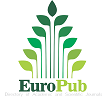"Thank you, woman, for being a woman"
the feminine essence from a bioethical perspective
Abstract
Thinking and rethinking the feminine is the fruit of all time. Indeed, the centrality of the question of women and female genius is always at stake, always under discussion; therefore, it is a question of rediscovering the true meaning of femininity, as the central axis of human life, because it is. And, to understand the question of women, it is necessary to start from the anthropological, bioethical conception of corporeality, which is fundamental in the development of their own feminine spirit. What makes him who he is. The human person understood as a unit, bio psycho socio-spiritual; it is the one that is able to respond by itself, to the challenges and challenges of today's world, from its own reality of being who it is, from identity. And, from this recognition of identity, to be able to turn to action in the construction of a better world, of a better society, where the sacred value of all life and human dignity is respected.
Downloads
References
Burggraf, J. (2004) ¿Qué quiere decir género? En torno a un nuevo modo de hablar. Costa Rica: Promesa.
Burggraf, J. (2011). Varón y mujer ¿naturaleza o cultura? Altar Mayor, 139 (1), 179-192.
Burgos, J. (2006). Una exploración personalista en el concepto de praxis. Tópicos, Revista de Filosofía, 31, 35-64. https://bit.ly/3H6wp10
Castilla y Cortázar, B. (1997). Persona y vida humana, desde la noción de persona de Xavier Zubiri, Cuadernos de Bioética, 3, 1113-1118. https://bit.ly/32hKauS
Castilla y Cortázar, B. (1999). La diferencia en antropología, Anales de la Red Académica de Doctores, 3, 55-62. https://bit.ly/3qf9Y2E
Castilla y Cortázar, B. (2004). Antropología diferencial. Igualdad y diferencia, Anales de la Real Academia de Doctores de España, 8, 7-12. https://bit.ly/3qipB9G
Filippi, S. (2012). El alma unida al cuerpo es más semejante a Dios. Reflexiones sobre el rol de la corporeidad en la antropología tomista, Enfoques, 26 (2), 53-62. https://bit.ly/3smdIlH
Giachetti, A. (2016). La persona como ser en relación en el pensamiento de Julián Marías, Persona y Cultura, 14, 151-159. https://bit.ly/3EcIIa4
Juan Pablo II. (15 de agosto de 1988). Mulieris Dignitatem.
Juan Pablo II. (29 de junio de 1995). Carta del Papa a las Mujeres.
López, J. (1991). El amor humano: Su sentido y su alcance. Madrid: Edibesa.
Marías, J. (1994). Mapa del mundo personal, Madrid: Alianza.
Marías, J. (1998). La mujer y su sombra, Madrid: Alianza.
Navas, S. (1980). Ensayo Sobre La Liberación Femenina, Revista Chilena de Derecho, 7, 124-154.
Padilla, N y Huapaya, R. (2020). Reflexiones bioéticas sobre la mujer y lo femenino en el personalismo de Karol Wojtyla. Tesis de Maestría. Universidad Católica Santo Toribio de Mogrovejo, https://bit.ly/3snZ911
Prevosti, A. (2011).La Naturaleza Humana En Aristóteles, Cuadernos del Instituto Filosófico de Balmesiana, 60(141), 35-50. https://bit.ly/3qh33pF
Sgreccia, M (2014). Manual de Bioética I, Madrid: ABC.
Stein, E. (1998). La mujer. Madrid: Biblioteca Palabra.
Stein, E. (2005). Obras completas IV. Burgos.
The authors retain copyright.
This work is under international license Creative Commons Attribution 4.0.
The articles published by the scientific journal "Notes on Bioethics" of the Universidad Catolica Santo Toribio de Mogrovejo, Chiclayo Peru, can be shared through the international public license Creative Commons Attribution CC BY 4.0
























 LIBRARY USAT
LIBRARY USAT